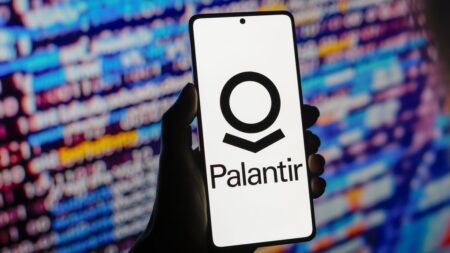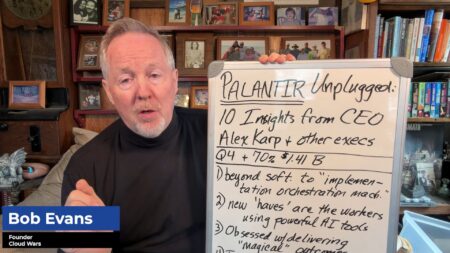Bonnie Tinder is the founder and CEO of Raven Intelligence, an independent B2B peer review site that amplifies the voice of the customer. She focuses on software customers, consulting partners, and software vendors and helps identify the best partners for their needs. In this episode, she shares powerful insights from leading organizations on how AI is being used not to replace employees, but to enhance experiences, streamline operations, and drive better business outcomes through purpose-driven, human-centered deployment strategies.
Episode 56 | Human-Centered AI Strategies
The Big Themes:
- Augments, Not Replaces Humans: AI should enhance the human experience, not eliminate it. Real-world examples, such as Marriott’s use of AI to improve the check-in process, demonstrate that AI can remove operational friction and allow frontline staff to focus on hospitality and customer engagement. In the energy sector, utilities are embedding AI into safety systems to make work more accurate and proactive. These examples show that the most successful AI deployments begin by identifying pain points in human workflows.
- Cultural Readiness Is Crucial for AI Success: AI adoption is not just a technical project; it is a cultural transformation. Multiple examples made it clear that even the most advanced tools can fail without the right introduction. One university CHRO compared AI implementation to sneaking vegetables into meals. By avoiding technical jargon and focusing on small improvements, they saw stronger adoption. People often resist what they do not understand, especially when it feels like a threat. Leaders who frame AI as a tool for reducing stress, reclaiming time, and increasing impact are more likely to succeed.
- AI Should Start with Outcomes: Real AI value begins with the business goal, not the technology itself. Companies that succeed with AI are the ones that begin by identifying the result they want to achieve. Whether it’s streamlining hotel check-ins, reducing safety risks in energy infrastructure, or accelerating clinical breakthroughs, effective strategies start with specific problems. These companies ask their teams where the friction lies, and then choose tools to fix those issues. This is a shift from a technology-first mindset to an outcome-first mindset.
The Big Quote: “I hope you know business people will all start to get to the point of like, yes, the nature of work is going to change. But AI is not going to spell doom and gloom for every worker on Earth. It’s going to give many, many, many of them an opportunity to do better things.”
More from Bonnie Tinder:
Connect with Bonnie on LinkedIn or send a message via her Analyst page.






